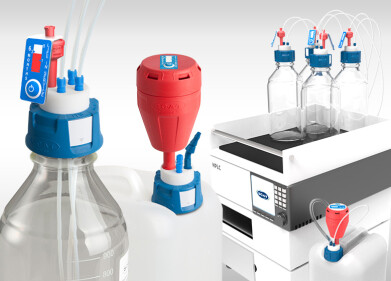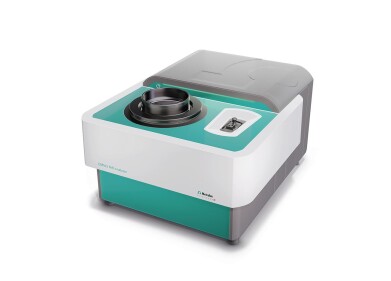Laboratory Products
What is Digital Transformation for Laboratories?
Dec 28 2021
Digital technologies are transforming the way businesses operate and scientific laboratories are no exception. Below, we dive into what digital transformation means for laboratories and the benefits on offer for tech-savvy scientists.
Defining digital transformation
Before we get started, let’s take a moment to define digital transformation. The term describes the adoption of digital technologies and data management strategies by a business, company or organisation. The underlying goals of digital transformation are to improve efficiency, add value and drive innovation. The term isn’t exclusive to the scientific sector and can be applied to a wide range of industries, from oil and gas to retail and tertiary education.
For laboratories, digitalisation has drastically improved efficiency and offered a plethora of benefits. Digital transformations are taking place on a variety of levels, from automating basic tasks such as calibrating hardware systems and preparing samples to processing complex data using advanced analytics software.
Read on for a closer look at some of the key benefits of digital transformation for laboratories:
Increasing throughput levels
Digital technologies have allowed laboratories to significantly increase throughput levels and improve efficiency. For example, at the Dr. Wisplinghoff Laboratory in Cologne, automated Liquid Chromatography-Mass Spectrometry (LC-MS) has helped to reduce the daily workload for scientists and technicians, as well as carry out new analyses inhouse, which previously had to be outsourced.
Streamlining workflows
Laboratory orchestration engines are rapidly gaining momentum as one of the best ways for pharmaceutical companies to unlock value from data stockpiles. The comprehensive platforms use transformational data layers to bridge the gap between different technological platforms, as well as equipment, instruments, services and even scientists themselves.
Industry leading laboratory orchestration solutions company Thermo Fisher Scientific says the goal is to create a “seamlessly connected laboratory ecosystem” to “reduce manual processes” and allow researchers to “focus on the science.”
Minimising human error
Human error is one of the biggest issues faced by scientific laboratories. From lost or incorrectly labelled samples to accidental exposure to pathogens, human error can cause all kinds of problems. Digital transformation has emerged as an effective way to minimise human error, maintain productivity and improve safety.
Improving data quality
By minimising human error, digital transformation simultaneously improves the quality of data. The use of advanced algorithms and computer software also supports in-depth data analysis that wasn’t previously possible.
Driving innovation
Digital technologies have allowed laboratories to automate both simple and complex tasks. This allows scientists to focus on exploring new ideas and innovations in the laboratory.
Want to know more about the digital revolution? Trish Meek, a representative from Thermo Fisher Scientific, introduces the latest technologies being used to reimagine laboratory operations in ‘A three-step plan for digital transformation.’
From medical research labs to space exploration centres, artificial intelligence is a key driver of digital transformation. Find out more in 'Laboratory AI - How Does It Help Scientific Research?'
Digital Edition
Lab Asia 31.2 April 2024
April 2024
In This Edition Chromatography Articles - Approaches to troubleshooting an SPE method for the analysis of oligonucleotides (pt i) - High-precision liquid flow processes demand full fluidic c...
View all digital editions
Events
Apr 22 2024 Marrakech, Morroco
Making Pharmaceuticals Exhibition & Conference
Apr 23 2024 Coventry, UK
Apr 23 2024 Kintex, South Korea
Apr 23 2024 Seoul, South Korea
Apr 24 2024 Jakarta, Indonesia













.jpg)




